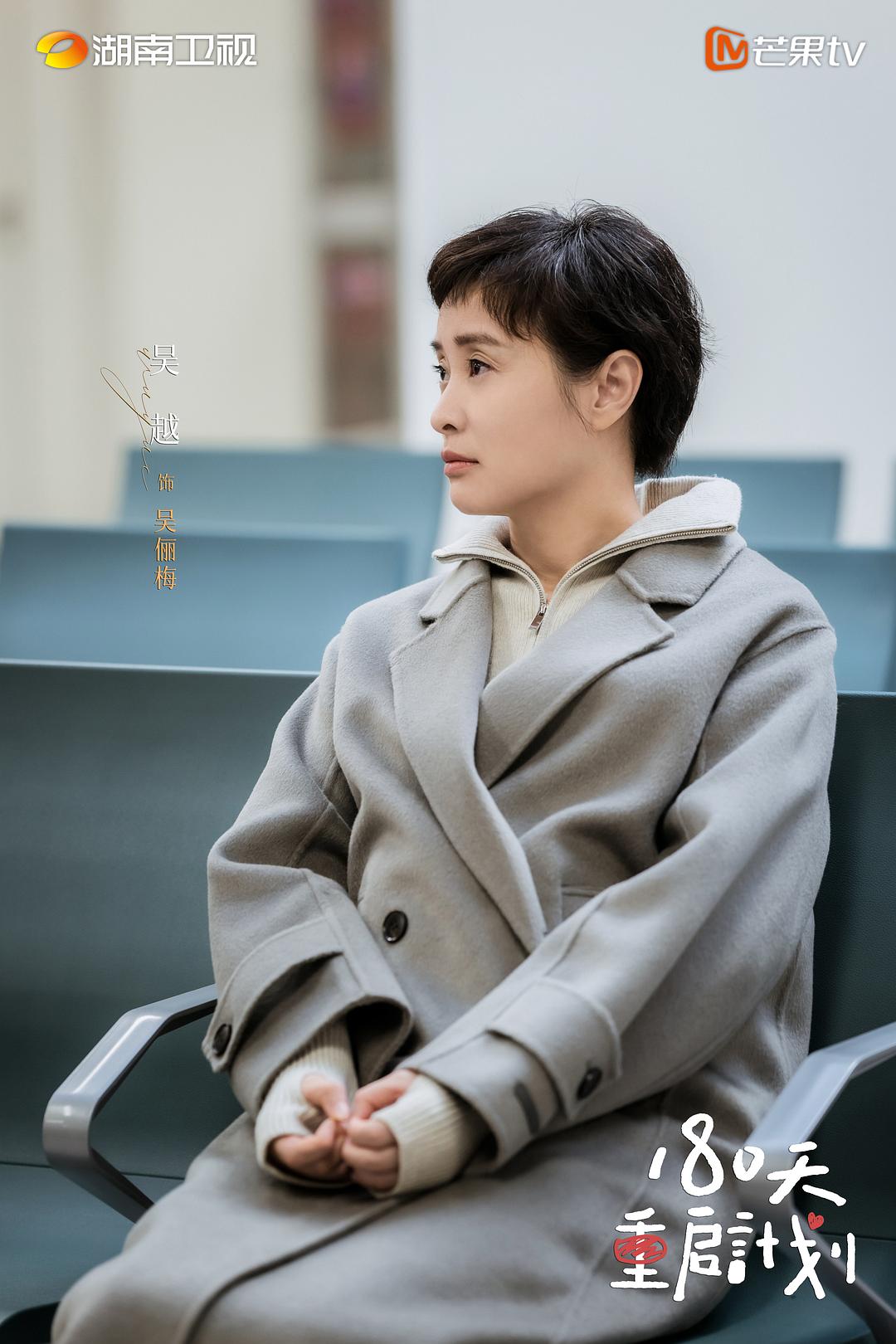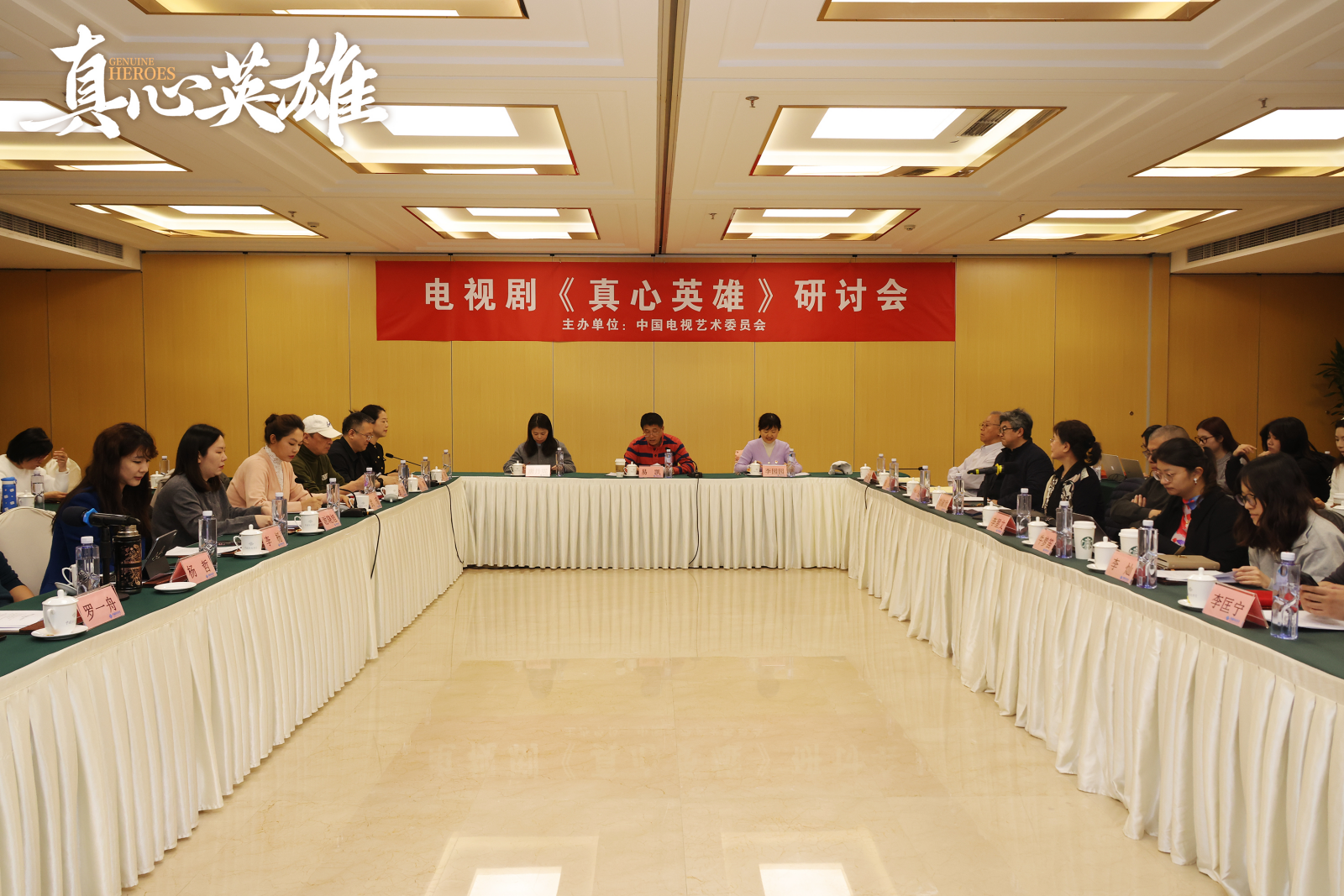
If "Fanghua" recreates the financial epic of China's stock market rising from the barrenness in the 1990s, then the recently launched "City within a City", a "Shanghai original and Shanghai-produced" series, is like a prism, focusing on and reflecting the more ups and downs, treacherous and turbulent financial landscape of today's era, presenting a true picture of the survival, struggle and choices of contemporary financial people.
"City Within a City" is adapted from the novel of the same name by Lu Xun Literature Award winner, Shanghai writer Teng Xiaolan. It is directed by Teng Huatao and starred by Bai Yufan and Yu Hewei.
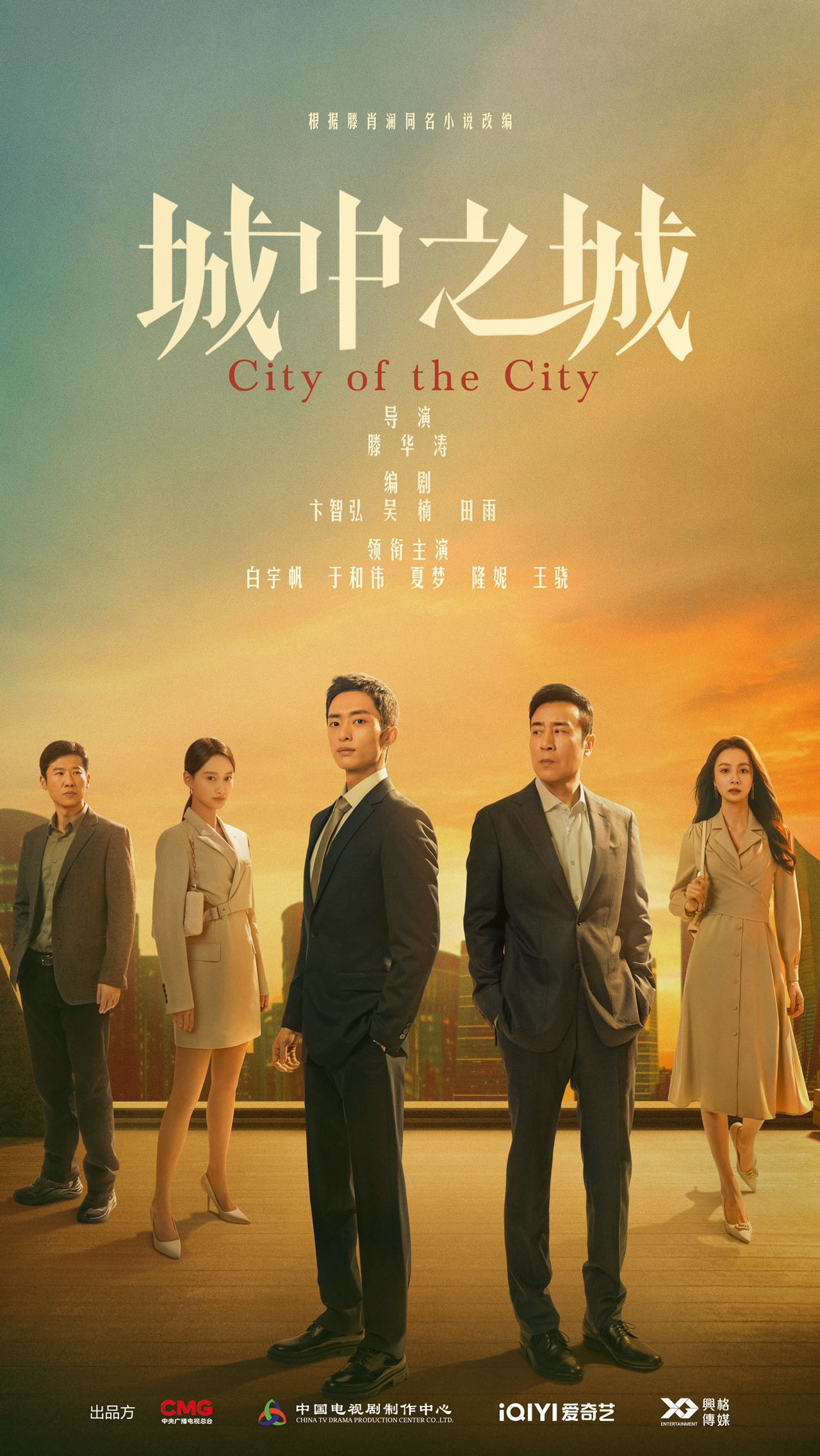
Poster of "A City Within a City"
The original author Teng Xiaolan mentioned in an interview with The Paper , "Just as the style of the financial industry is rigorous and rich, I hope that my novel is also rigorous and rich, while also being delicate, grand, and meaningful." After watching the first episode of the TV series "City Within a City", it is not difficult to find that it continues the style established by Teng Xiaolan in the novel: rich and grand, rigorous and delicate.
The story is quite attractive from the beginning. The private enterprise Jiaxiang Group has its share price maliciously suppressed by international capital, which covets Jiaxiang's market share and the national industry behind it. Jiaxiang Group wants to use the bank's money to save the market, but this is against the rules. Dai Qiye (played by Zhang Shen), the president of the Shenzhen Mao Bank branch, who has been honest and upright all his life, loves and supports private enterprises. He decides to take a risk and help Jiaxiang Group through the trust channel.
Unexpectedly, Dai Qiye's kindness was taken advantage of by the trust, which first used its own money to short and then to long, making a fortune. However, when Jiaxiang Group was maliciously shorted and its stock price fell to the lowest point, Dai Qiye was distracted by the pessimistic market report and had a car accident.
"The City Within a City" opens with the unexpected death of a bank president, creating a tense atmosphere, grabbing the audience's attention, and quickly entering the plot; accompanied by a series of clues and doubts: Who is the mastermind behind the death? What kind of industry secrets and human entanglements are hidden behind the death?
Dai Qiye's departure is like a stone thrown into the lake, causing ripples and slowly unfolding a ukiyo-e of multiple roles in the financial field, including banks, trusts, private enterprises, etc., involving Zhao Hui (played by Yu Hewei), Miao Che (played by Wang Xiao), Su Jianren (played by Feng Jiayi), Xie Zhiyuan (played by Tu Songyan), and other previous generation financial people, as well as the new generation such as Tao Wuji (played by Bai Yufan), Tian Xiaohui (played by Xia Meng), Cheng Jiayuan (played by Yao Yiqi), and Hu Yue (played by Liu Ruoyan). The encounters and intersections in the workplace richly and three-dimensionally present various deep-seated issues such as character relationships, conflicts of interest, and moral dilemmas within the financial industry.

Zhao Hui (played by Yu Hewei)

Tao Wuji (played by Bai Yufan)
As the most complete drama showing the financial group portrait so far, "City in the City" is undoubtedly rich. In the rich expression, it also established the core theme of grandeur and positivity early on, and accurately conveyed it to the audience through the metaphor of "white shirt".
The financial industry is directly linked to capital operations, value creation and wealth accumulation. It is an industry full of temptations. Unwritten industry practices, tacit understandings in interpersonal relationships, ways of exchanging interests, etc. have a significant impact on the behavior of practitioners, causing individuals in it to often fall into contradictions and struggles: should they always stick to their bottom line and principles, or succumb to unspoken rules and compromise with the bondage of interests?
After Dai Qiye's memorial service, his wife, Teacher Ouyang (played by Chen Jin), gave earnest advice to Dai Qiye's four former proud students, Zhao Hui, Miao Che, Su Jianren and Xie Zhiyuan. Teacher Ouyang understood their personalities and warned them to cherish their reputation, stick to the bottom line and not do anything illegal.
"You all wear clean white shirts and go to work. No matter how well you take care of them, they will eventually turn yellow or black. This is the law of nature. But you can't mess with them just because they will turn yellow or black. In three days, they will turn black. We still have to take very good care of them."
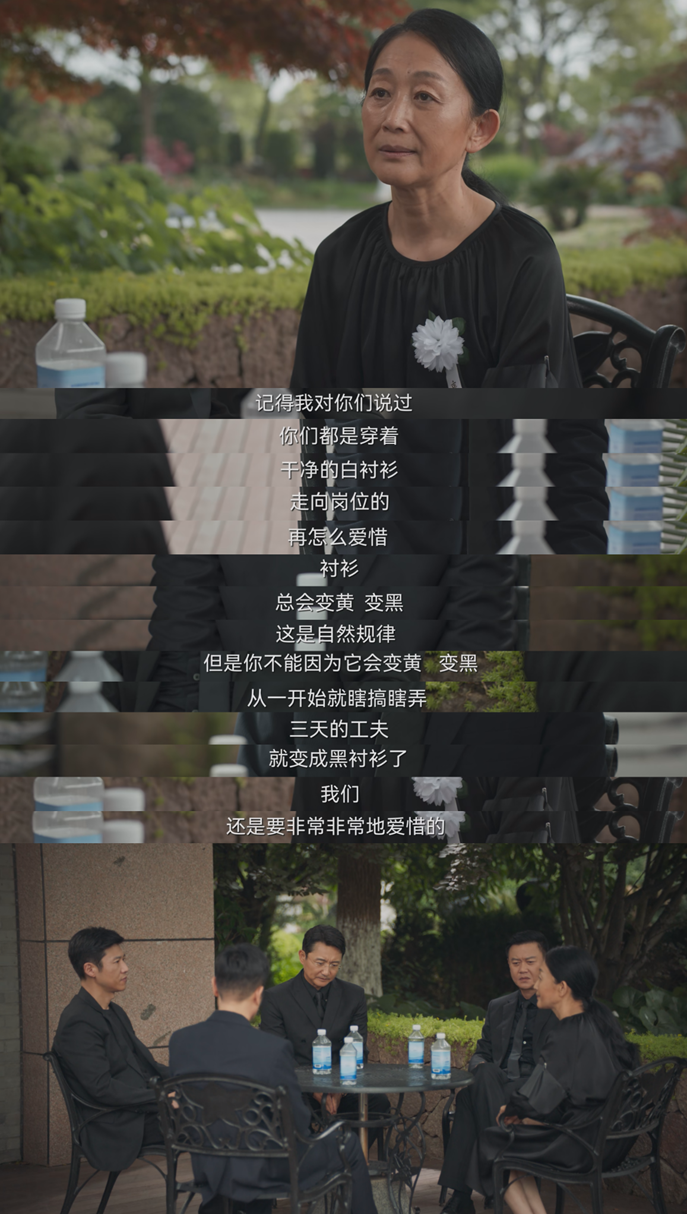
"White shirt" is an important metaphor
"City Within a City" opens with an overview of the industry, and through its grand theme, it inspires the audience to think about industry ethics, professional ethics, and life direction.
As director Teng Huatao said, the financial industry is a highly professional and focused industry, so in terms of narrative, performance and imaging, he hopes to stay as close to the characteristics of the industry as possible, using a subtle and brisk rhythm, and abandoning external techniques, in order to achieve a shocking effect that directly hits human nature.
In terms of audio-visual language, "City Within a City" fully reflects the characteristics of the financial industry: rigorous, bright, and cold.
The dense and magnificent high-rise buildings directly present the prosperity and economic vitality of the financial center, creating an atmosphere of urban elite culture; the busy streets and busy traffic lines symbolize the high-speed operation and fierce competition in the financial industry, and reflect the time pressure faced by practitioners.
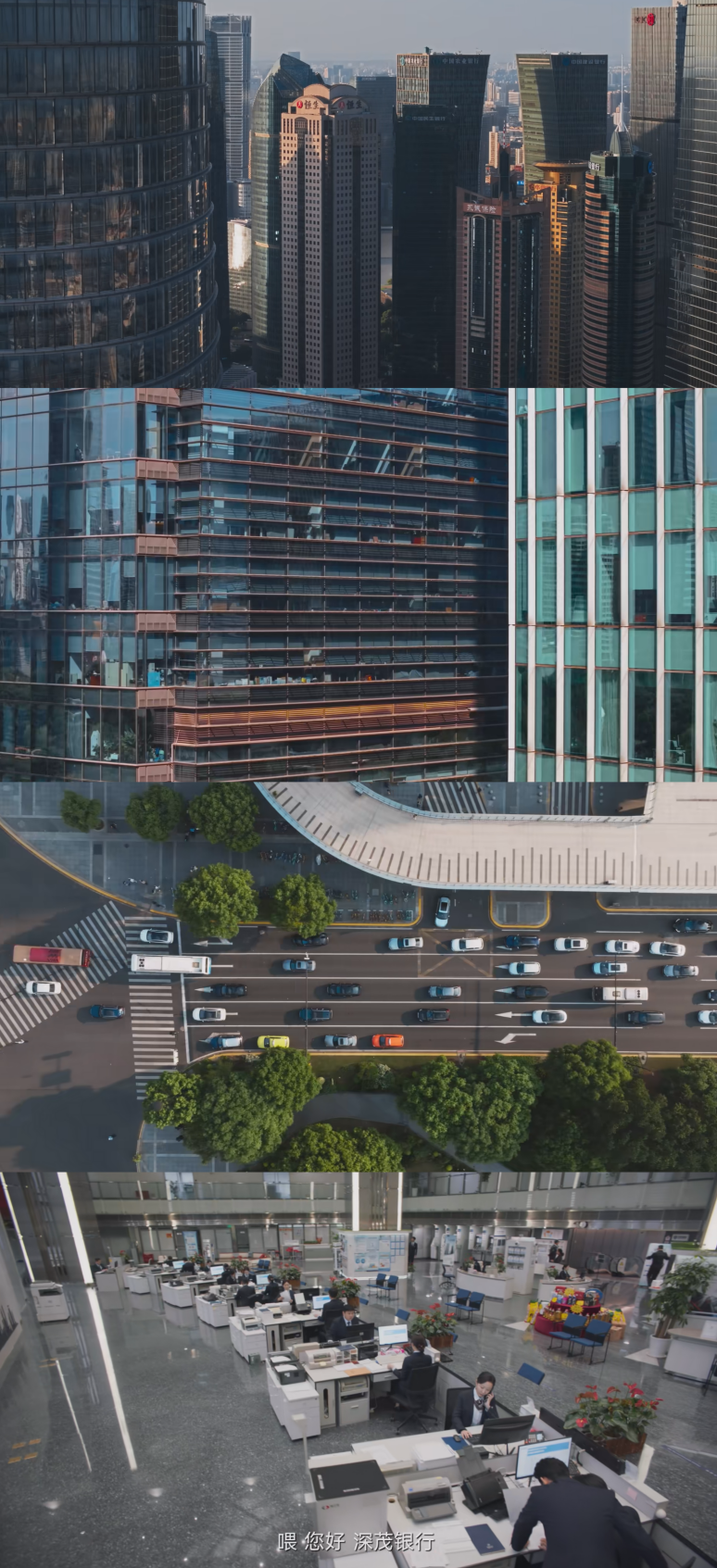
A strong urban feel
The cool gray tones create a calm, rational and professional visual tone, echoing the rational decision-making characteristics of the financial industry; the interior decoration of the bank building is minimalist and exquisite, with clear lines, emphasizing functionality and efficiency, and highlighting the high-end business temperament.
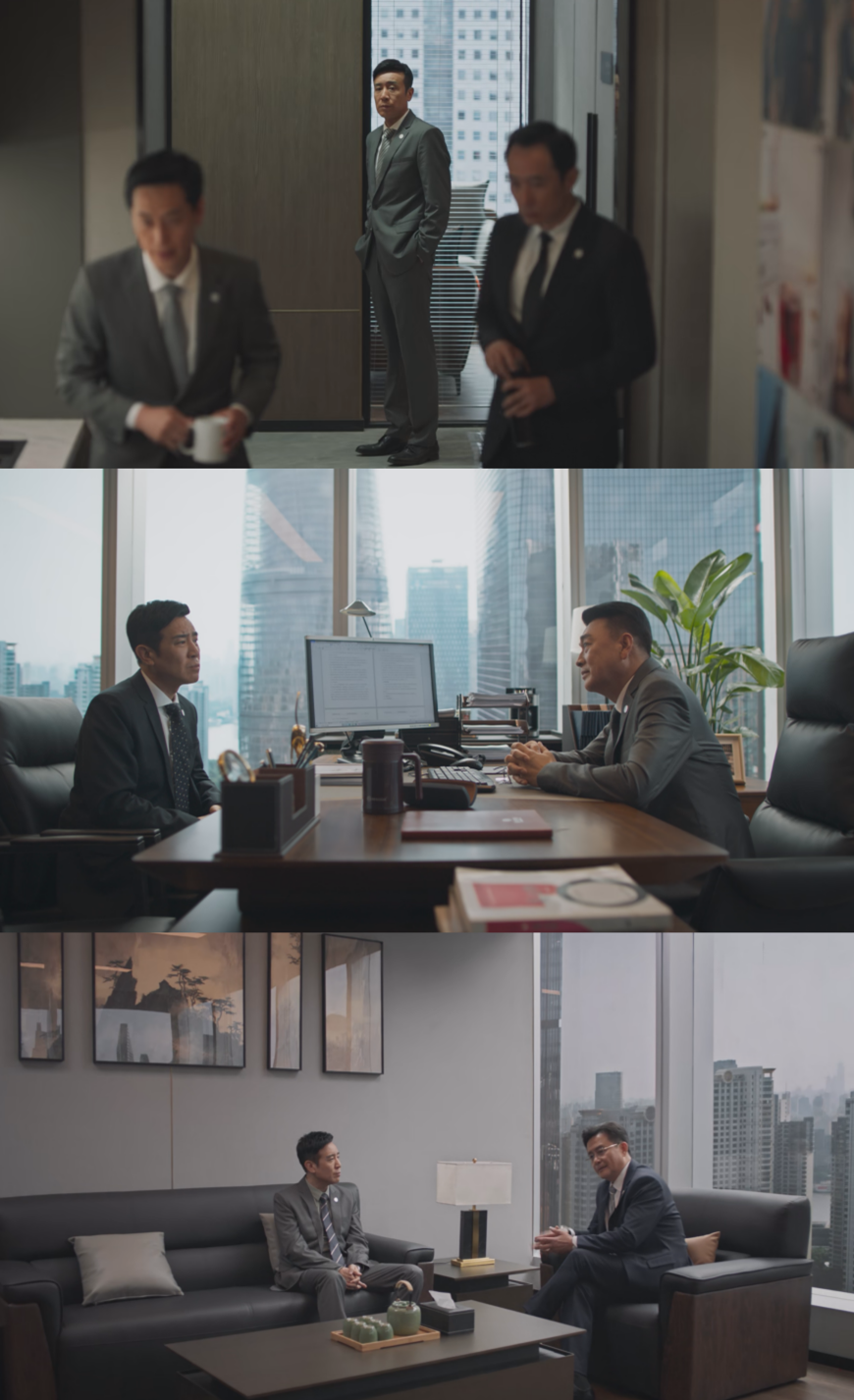
Cool colors highlight the rigorous professional temperament
In occasions where important characters are talking to each other, steady and regular compositions are mainly used, emphasizing order and rules, which is in line with the authority and standardization of the financial field; when expressing the working status of grassroots financial staff, more bright and compact camera switching is used, and the pictures are dynamic, reflecting the tense and efficient working atmosphere of the financial industry.
Although rigorous, it is not cold. As the original author Teng Xiaolan said, "'Finance' gives people a cold and overly practical feeling, while literature is long-lasting, emotional, and difficult to describe." Teng Xiaolan supplements the "literariness" of the financial theme of "City in the City" by focusing on "people" in the financial background and "writing about people's fate. Writing about the changes that people have experienced in different environments and situations, and the choices they face."
The TV series "City Within a City" continues this point very well - writing about people, the relationships between them, and their destinies, in a delicate and lingering way.
For example, after the memorial service for Dai Qiye, Zhao Hui, Miao Che, Su Jianren and Xie Zhiyuan got together for a meal. They did not have a pleasant meal. After the service, Zhao Hui and Miao Che were in the same car, both of them were depressed and had heavy expressions. In another car, Su Jianren and Xie Zhiyuan were calling each other brothers, smiling happily and flattering each other.

Different road non-phase plan
The completely different riding atmospheres of the two groups of characters form a sharp contrast, which not only highlights the different personalities and psychological states of the characters, but also foreshadows the obvious emotional differences and interpersonal relationship rifts among the four people. It makes people curious about the stories and reasons hidden behind the emotional differences, and lays the groundwork for the development of the subsequent plot.
Tao Wuji, a diligent and hardworking new banker, and his girlfriend Tian Xiaohui, who is lively and proud and eager to get rid of her tight life through her own efforts, are in love. When Tian Xiaohui goes to the bank to apply for a salary card, the counter staff happens to be Tao Wuji, who holds hands and sends a small note under the window, which fully reflects the sweetness of the young couple.
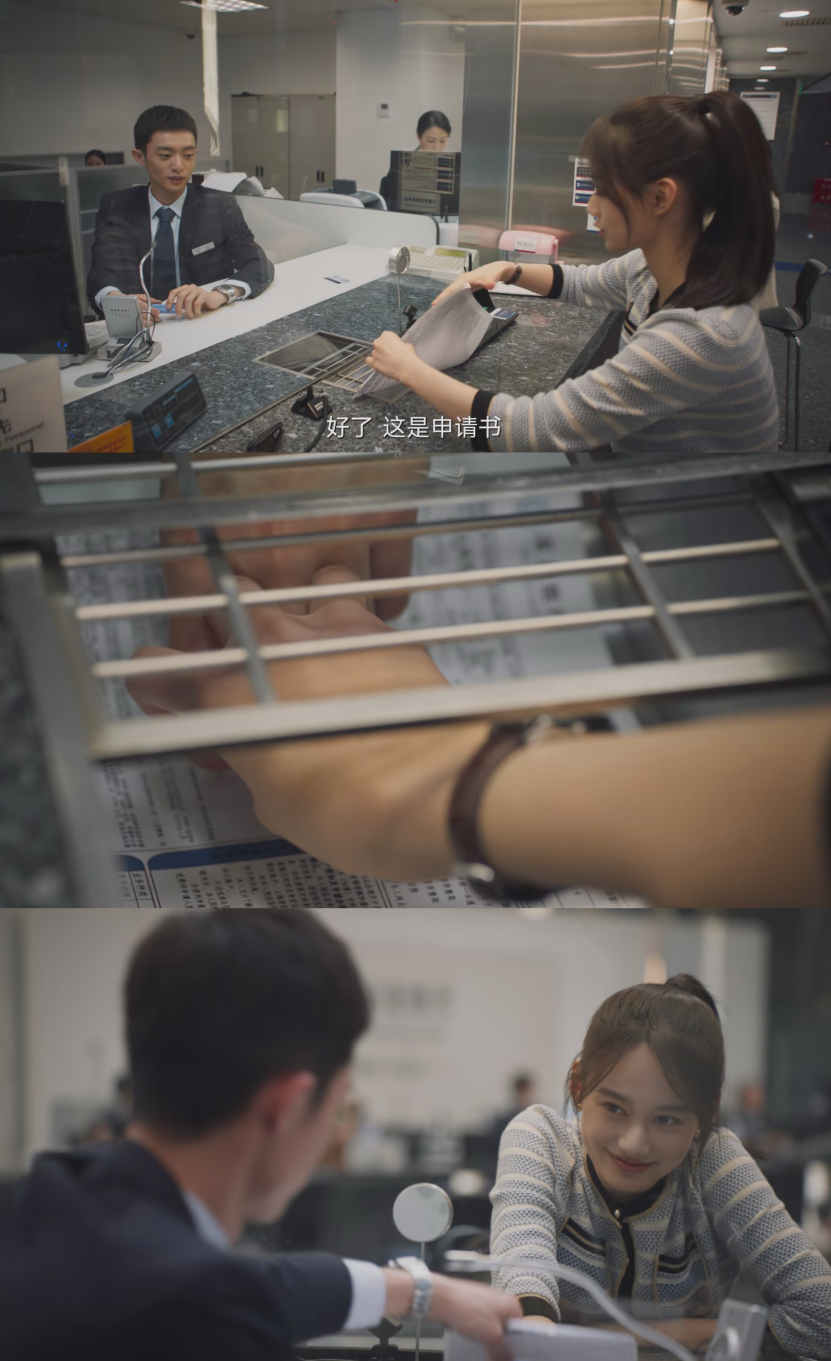
Young couples have to be affectionate when doing business
Hu Yue on the other side watched the scene coldly with some dissatisfaction, cleverly using the third-party perspective to highlight the sweetness of Tao Wuji and Tian Xiaohui's love, and quietly introducing potential emotional conflicts. The audience can immediately get that Hu Yue's feelings for Tao Wuji are not just as simple as colleagues, enriching the character relationship network and reflecting the director's efficient control of the plot and delicate expression ability.
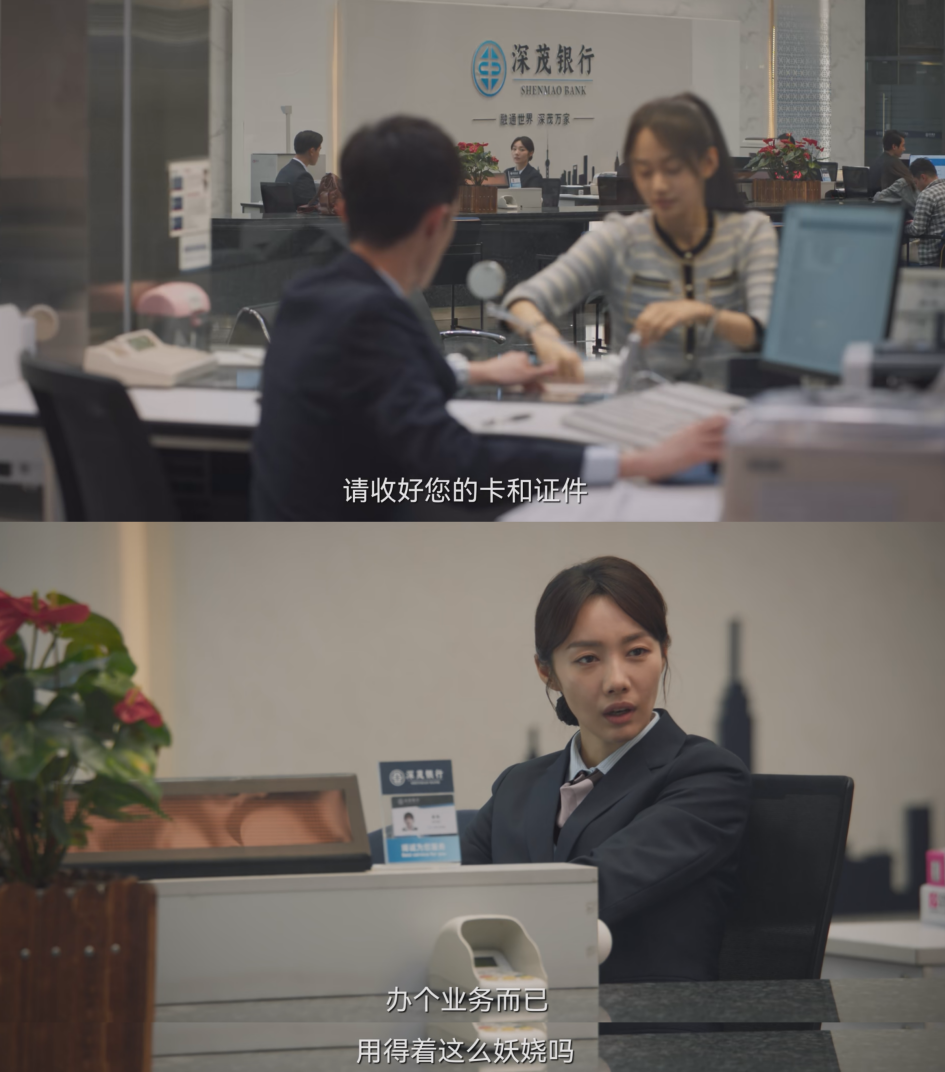
Hu Yue looked at the young couple from afar with an unhappy expression.
The financial industry is a broad and hierarchical ecosystem, with glamorous executives, elite traders, and grassroots employees working hard on the front line. The perspective of "City in the City" is not high-handed, but it spends a lot of time and effort to describe the real life of grassroots financial personnel. For example, the landlady would break into the small house rented by Tao Wuji from time to time; there are also hard-working workers in the glamorous financial building. When they are overwhelmed by work or life, they will secretly hide on the top floor of the building to wipe their tears...
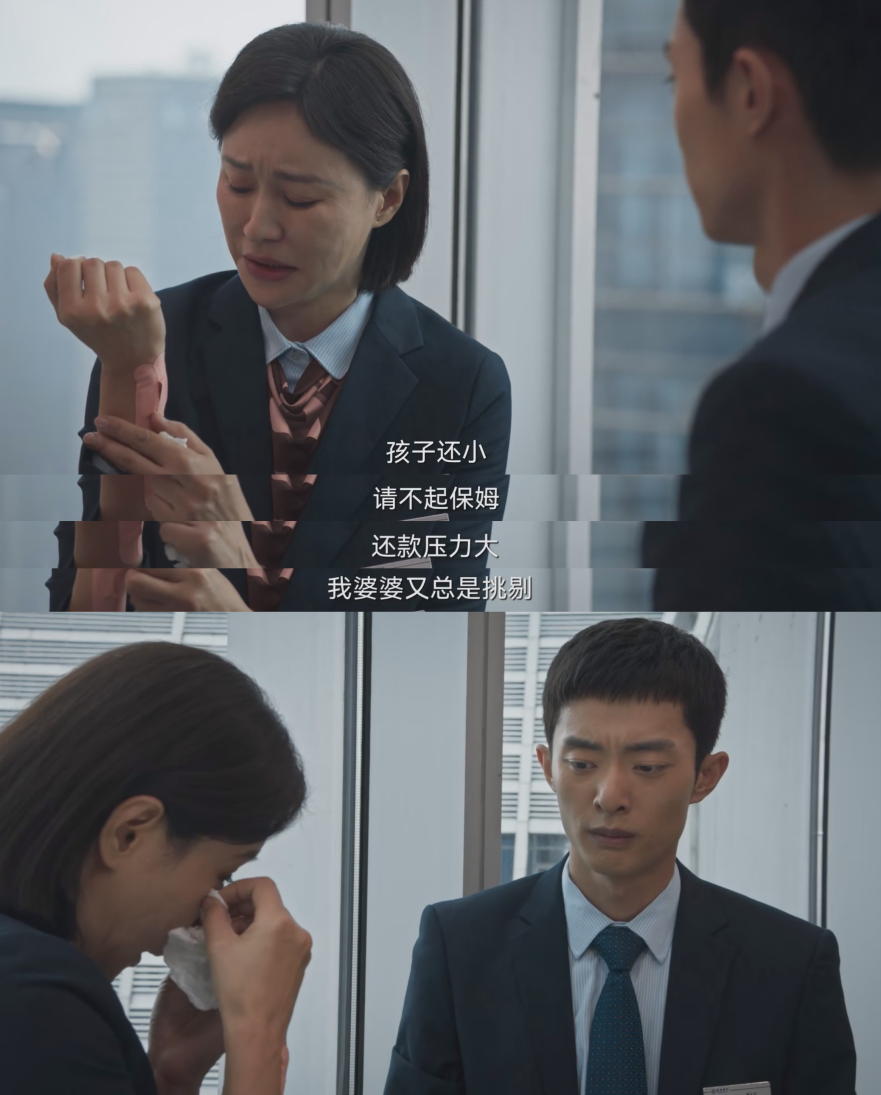
Grassroots financial personnel have their own joys and sorrows
The delicate portrayal of grassroots financial personnel in "City Within a City" reveals a deep humanistic concern for ordinary workers. It does not avoid the difficulties and struggles of grassroots financial personnel, but presents these moments with sympathy and understanding, making the series more warm and powerful.
Although it has just been aired, "A City Within a City" has already revealed the texture of a masterpiece with its rich and grand, rigorous and delicate style. I believe that through "A City Within a City", we will see "real and emotional Shanghai" and "the self-disciplined, tenacious and lovely people on this land", and will also witness the personal growth trajectory and spiritual transformation of various types of financial institutions and practitioners in the changing times.
